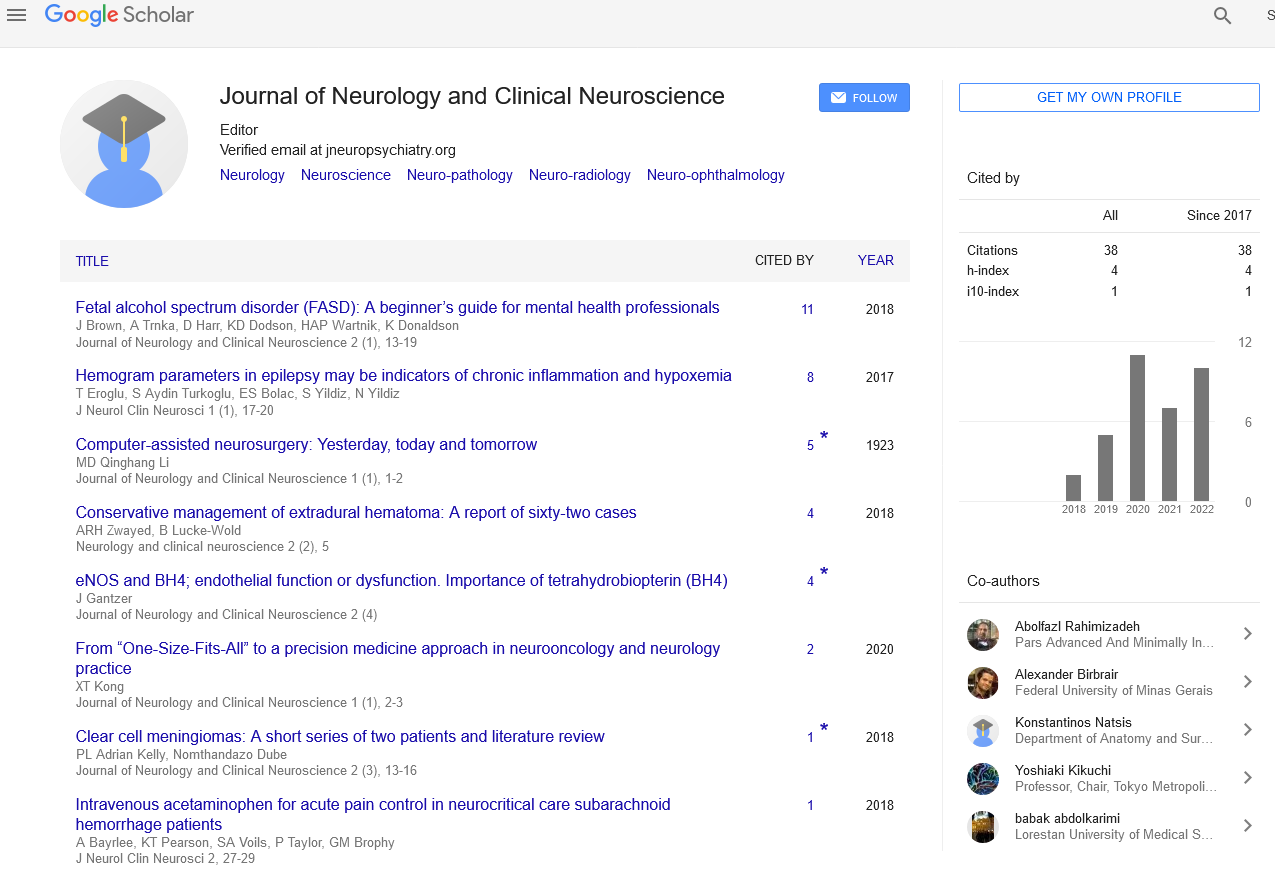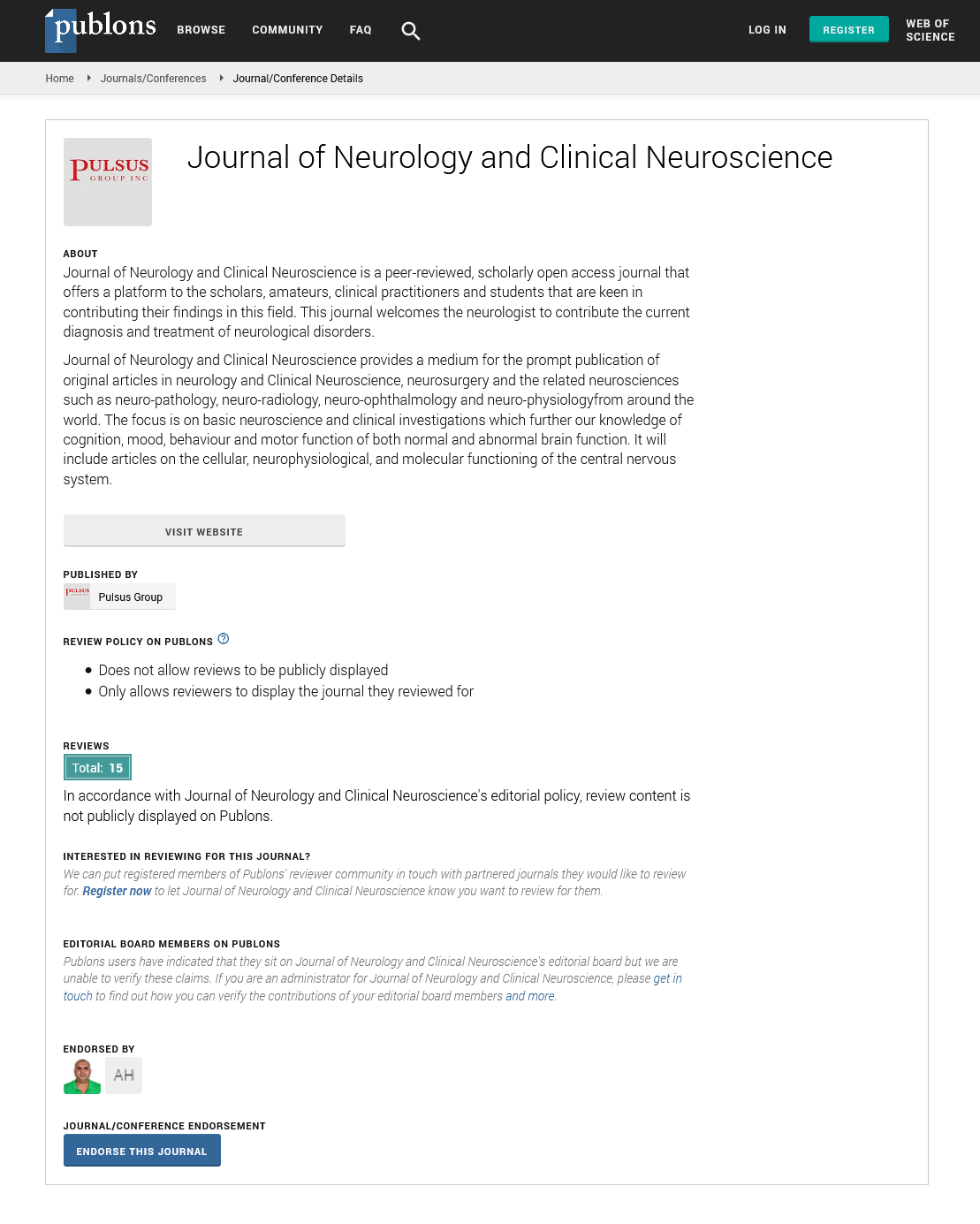Sign up for email alert when new content gets added: Sign up
Resveratrol attenuates endoplasmic reticulum stress (ERS) induced cell death and results in functional improvement after traumatic brain injury
Joint Event on 6th Annual Meeting on Neurosurgery and Neurological Surgeons & 9th Global Summit on Neuroscience and Neuroimmunology
May 22-23, 2019 London, UK
Mark Nyanzu
Wenzhou Medical University, China
Posters & Accepted Abstracts: J Neurol Clin Neurosci
Abstract :
Traumatic brain injury (TBI) is often caused by accidents that damage the brain. TBI can induce endoplasmic reticulum stress and lead to neuronal and glial cell death. Persistent overwhelming stimuli trigger ER stress to initiate apoptosis, autophagy, and cell death. Caspase-12 and CHOP signaling pathways are important players of ER stress, which is also modulated by ROS production, calcium disturbance, and inflammatory factors. In this study, we investigated the mechanism of cell death during the damage caused by TBI in vivo and in vitro, as well as the protective effect of resveratrol (RV), which is a polyphenol antioxidant found in red wine and has been shown to play a neuroprotective role. Here we report that Endoplasmic reticulum stress was activated in mice brains exposed to TBI. In the in vitro TBI model, apoptotic and neuroinflammatory cytokines were induced through the activation of BV2 microglial cell by LPS. LPS triggered activation of microglia, detected by an increase of TNF-α, and IL-1β, detected by qPCR. Treatment of RSV reduced neuroinflammation by inhibited LPS-induced TNF-α, IL-1β production in a concentration-dependent manner.
We investigated the effect of the administration of resveratrol (RSV) post-traumatic brain injury (TBI) on reducing ERS markers. TBI was induced by cortical contusion injury in mice. RSV (40 mg/kg in dimethyl sulfoxide) was administered intraperitonially at 5 min after TBI, followed by a daily dose for 3days. The expressions of GRP78, caspase-12, chop and caspase-3 were evaluated by Western blot. Neurological function was further evaluated to investigate the development of TBI. We found that post-TBI treatment with RSV could markedly inhibit the expressions of GRP78, CHOP and CASPASE-12. However, RSV treatment failed to reduce caspase-3 although neurological deficits at 72 h after TBI improved. These results indicated that RSV treatment could alleviate EBI after TBI, at least in part, via inhibition of ERS signaling pathway.
Biography :
E-mail: lijiehuangwy@163.com





